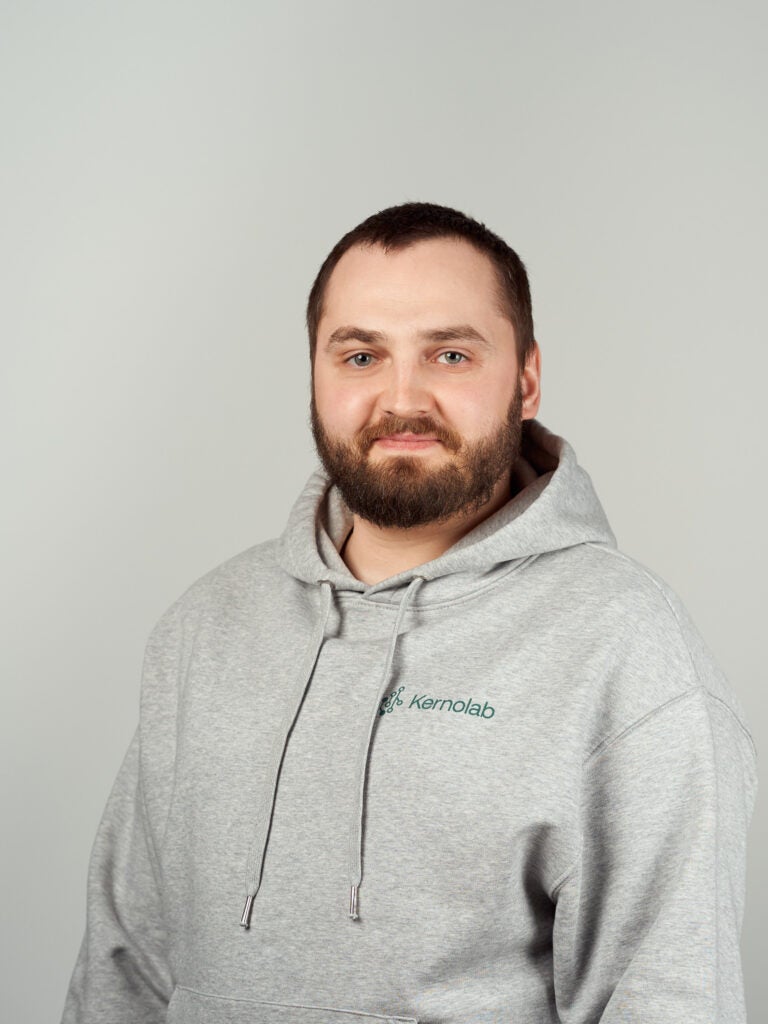
Sergej V. is the CTO and co-founder of Kernolab, the Lithuanian embedded finance startup. Founded in 2021, the company raised €855,000 to grow its banking-as-a-service solution in September last year.
It is not the only embedded finance company to do so. Rival firms Modulr, Weavr and Toqio have all raised funding rounds over the past year. There’s a reason why these companies have convinced investors to bet on them.
Embedded finance has become a huge thing over the past few years. Juniper Research analysts expect to be worth $138bn by 2026. Innovators in this fintech industry segment enable non-financial companies to add financial services to their businesses.
This follows a bigger trend of fintech funding having ballooned over the past two years. In 2019, VCs injected over $32.1bn into the fintech industry across 1,821 deals, according to data from research firm GlobalData. That figure rocketed over the next two years. Fintech ventures raised over $84.5bn across 2,356 deals in 2021. The industry has raised $20.3bn across 614 deals in 2022 so far.While that is lower than the grand total of the amounts raised in 2021, VC deals are still on track to overtake the amount raised in 2019 and 2020.
As the CTO of Kernolab, Sergej V. has seen the moves made in the sector first hand. However, the Kernolab CTO believes there are still things that people don't get when it comes to embedded finance
How well do you really know your competitors?
Access the most comprehensive Company Profiles on the market, powered by GlobalData. Save hours of research. Gain competitive edge.

Thank you!
Your download email will arrive shortly
Not ready to buy yet? Download a free sample
We are confident about the unique quality of our Company Profiles. However, we want you to make the most beneficial decision for your business, so we offer a free sample that you can download by submitting the below form
By GlobalDataIn the latest Q&A in our CTO Talks series, the Kernolab CTO reveals what people get wrong with embedded finance and why it's suddenly become all the rage in fintech circles.

Eric Johansson: Tell us a bit about yourself – how did you end up in your current role?
Sergej V.: I started my tech career as a tech consultant in the first electronic money institution(former Lithuanian fintech) in our country. My work got noticed pretty quickly so I was promoted to dev and started to learn enterprise operations, apply my web security knowledge, and build quality products with all the best practices and modern tech. Then I became lead and left my previous company, that's how I've managed to become CTO in a new company and form new teams and new products and ended up being a co-founder of Kernolab.
Embedded finance is all the rage in fintech circles. Why is that?
I think it's because of market opportunities. Companies that have an online bank have overcrowded the market. On the other hand, it sounds very "tasty" when you can integrate a bank into your system, issue cards to your employees without even leaving your platform, and use all the banking as an embedded product. Possibilities are endless: you can integrate payment into a voice assistant or a smart refrigerator, you name it. Anything with the internet and programmable base can now be embedded with a financial API. Sounds cool, right?
What do people get wrong about embedded finance?
Well, people are usually wrong in thinking that it's something new. For me, embedded finance is just an improved API to an online banking system, with some fancy stuff like accounting via API using collected data or some cool features for SMEs which you can plug in. I'd worked on such things a long time before the "embedded finance" term was getting hyped.
What is the biggest technological challenge of embedded finance?
I would say that the biggest technological challenge comes when you rely on 3rd parties with outdated technological views and outdated technologies themselves. You have to adapt and start developing stuff not in a modern way just for things to work, and with embedded finance, you have to work with 3rd parties quite a lot.
Where did your interest in tech come from?
I think my tech path started in the days before Pentium was released. I was lucky when I was a child – I found a PC (can't remember which processor there was) at my relatives' house, and tried clicking everything until I managed to turn it on. I didn't realize back then that it was my first break-in into a system 😀 Then I became a hobbyist ethical hacker at some point in my life and I was helping other companies to discover their security issues for free because I liked it. All those challenges and constantly changing things forged my interest and I'm still addicted to all the tech.
What one piece of advice would you offer to other CTOs?
Don't forget the ‘T’ letter: always learn new things, try to keep up with the latest technologies, don't forget to code, and sometimes check the code your team produces. I know it's more of a management role, but new things can make you love your position more, so try to find some time for that. Believe me, it's possible.
What’s the most surprising thing about your job?
It never makes me bored. I always try new things, new approaches, and learn new stuff. It's like an RPG game when you're getting experience and leveling yourself up, buying new tools, etc.
What’s the biggest technological challenge facing humanity?
I think there are a lot of challenges we don't even consider at this point. I think the current challenge is releasing a super-computer to the public. I would put my hands on it and would solve some of the challenges I have.
What’s the strangest thing you’ve ever done for fun?
I'm usually at my PC, so it's either something technical or some rare real-world cases like once we walked 50km straight near a seaside from one city to another playing the same game with words like 7 hours. That was strange, and fun.
What's the most important thing happening in your field at the moment?
I would say three things are booming: AI, VR, and Crypto. Crypto and VR are mainly based on hype, but AI is something we should check on more often and work on it more to make human life easier and also answer some questions we can't. Also, AI helps with fintech/AML-related stuff a lot, omitting the human factor. Hopefully, humanity won't end like in a terminator movie.
In another life you’d be?
I would like to reincarnate with the same knowledge I have now from day zero and just learn much more things on top and make some more good global stuff. Although I would like for it to happen on another planet, as I was always curious about space. Colonized Mars would do nicely, as it looks very techy in all the movies.







